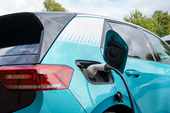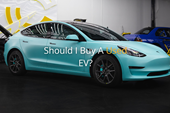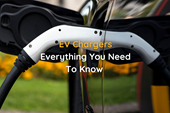
Are all electric vehicle chargers the same?
Please Note: UK Guidance has now change. Please see EV Chargers | Everything You Need To Know for up to date information.
Learn More About EV Chargers & Understand The Differences...
Charging an electric vehicle (EV) requires a dedicated charger. Here in the United Kingdom, there are many different locations where EV charging happens, including at work, at service stations in public places and perhaps most popularly, at home. While once there were few auto brands manufacturing electric vehicles, today virtually all well-known automakers have their own EV on offer.
As a result, you could be forgiven for wondering if each different make and model EV can employ the same kind of electric vehicle charger. With the UK’s network for EV charging still patchy in places, it can be more than stressful enough to locate an available charging station without needing to worry about whether your car will be compatible. Range anxiety is a common phenomenon that sees EV owners fretting that their electric battery pack will deplete entirely before they can reach a dedicated station.
"The exception to the universal nature of EV chargers is the Tesla Supercharger. It comes as no surprise that this piece of innovative charging equipment is at present, only compatible with electric vehicles produced under the Tesla brand."
Fortunately, in most instances, all electric vehicles can employ any type of EV charger. However, there is a notable exception. In this blog, we’ll take a deep dive into the world of electric car chargers explaining their adaptability. We’ll also look at the auto brand that requires a built-for-purpose charging solution. Read on for the answers you seek to questions about whether all electric chargers are the same.
Are electric vehicle chargers universal?
In general terms, electric vehicle chargers are largely considered universal. The reason for this is that almost all electric vehicles use the same standard plug design for both Level 1 and for Level 2 charging. These charger types are the most commonly encountered equipment currently in use around the world. A rarer type of charger is the Level 3 DC charger. However, most major cities will typically have several of these types of chargers available for EV drivers to access.
The exception to the universal nature of EV chargers is the Tesla Supercharger. It comes as no surprise that this piece of innovative charging equipment is at present, only compatible with electric vehicles produced under the Tesla brand.
Understanding how using different chargers can affect charging times
According to acclaimed EV manufacturer Kia, three distinct charging levels exist, and each one offers a different level of speed to EV owners.
A Level 1 charger uses a 120-volt AC plug. It can therefore be plugged into a standard electrical outlet. However, owners will need a Level 1 EVSE standard cable, with a conventional household plug with three prongs at one end and at the other, a J1722 connector for the electric vehicle. The length of charging can range anywhere from eight up to 12 hours.
A Level 2 charger instead uses a 240-volt AC plug and is typically only found offered at public stations. Charging times using this option will range from one to 11 hours but are impacted by the EV battery’s capacity and the rate of charge, which can be anywhere between 7 kilowatts and 22 kilowatts per hour.
The swiftest level of charging available is from a Level 3 charger which uses 480-volt DC or AC plugs. This rapid charging solution allows electric vehicles to become fully charged in just 20 minutes or an hour at most depending on the rate of charge which is usually between 43 kilowatts and 100 plus kilowatts. It can use either a CCS or CHAdeMO-type connector.
Are there any electric vehicles that must use a specific type of charger?
All electric vehicles being produced today are designed with the same standard type of plug that can be utilised with a Level 1 or a Level 2 charger. For those seeking DC charging, vehicles that are manufactured by Japanese automakers Mitsubishi and Nissan can make use of a CHAdeMO connector, while other types of EVs can use a CCS-type connector.
For those with Tesla-specific chargers, EV owners can buy an adapter that will enable them to charge their non-Tesla vehicle with a Tesla charger.
We recommend that you stay up to date with the charging network in the UK because it's changing as fast as the cars are on our road!
Our Final Word
We hope this article clears up everything you need to know about EV chargers. In the meantime, if you're considering, or already own an electric car, don't forget to research Gap Insurance, which could protect you against any financial shortfall, should your car be involved in an accident.
As always, we'd love you to share this article with your network if you've found it useful. If you have any questions, please get in touch with our team using our social media channels.












